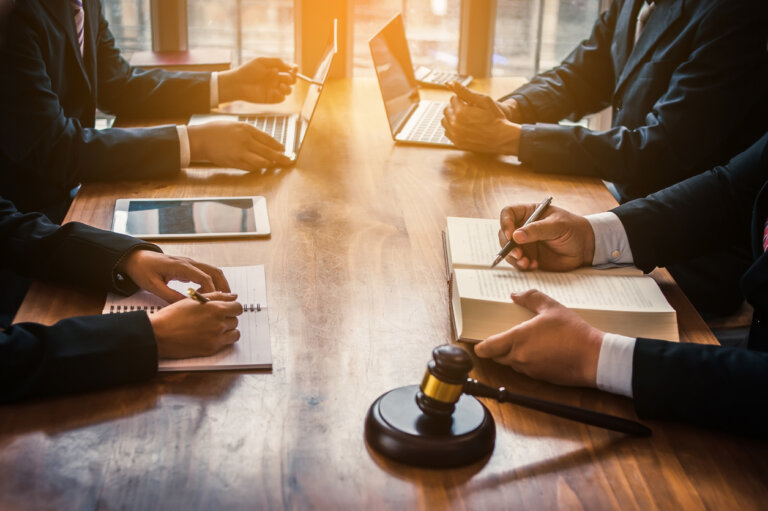The plaintiff and defendant in a personal injury lawsuit exchange information with each other during the lawsuit to prepare for the trial. In most cases, this sharing of information through the discovery process leads to the parties reaching a settlement without having to go to trial.
A New Jersey personal injury attorney could help you go after compensation from the at-fault party who caused your injuries. This article gives a brief overview of what “discovery” is in a personal injury lawsuit. There are four main categories of discovery used in most personal injury cases:
Depositions
Usually, depositions happen in person with several people in the room. The court reporter will place the deponent (person who has to answer questions from the plaintiff’s lawyer and defendant’s lawyer) under oath. The court reporter will record and take down everything the deponent and lawyers say when they are on the record.
A deposition can take place in the conference room of one of the lawyers or in a neutral location like a conference room at a hotel or business center. The lawyer who called the deposition will ask questions of the deponent. When that lawyer finishes their questions, the other lawyer can ask questions. The lawyers can go back and forth until one of the attorneys declines to ask questions during their round. At this point, the deposition is over.
The court reporter will prepare a transcript of the testimony. A deposition can last from a couple of hours to several days. The other primary types of discovery are not done in person.
Interrogatories
One lawyer sends the other lawyer a set of questions, called interrogatories, that the party must answer in writing, under oath. People usually have to return their responses to the other side within about a month. Much of the general information about the plaintiff, defendant, accident, injuries, liability, and other types of insurance coverage, and any other relevant information about the personal injury lawsuit gets exchanged initially by interrogatories.
Requests for the Production of Documents
A request for production is a discovery document that asks the other party to send back specific documents, like medical bills and employer records about lost wages to the party who propounded the requests. Usually, the first round of these requests gets sent to the other side at the same time as the interrogatories. Some of the requests for documents reference certain numbered questions from the interrogatories.
Requests for Admissions
Requests for admissions ask the party who receives the request to admit or deny specific facts, like whether they were drinking shortly before the collision or some other relevant facts.
The attorneys can object to individual questions or requests from any of these four types of discovery. They must have proper grounds to object, for example, that it is an improper question, is badgering the witness, is overly broad or vague, is unduly burdensome, or some other grounds. The judge can rule on the objection and strike the question or order the witness to respond. If the party receiving the discovery requests refuses to respond, the judge can impose sanctions.
Discovery can be contentious and tricky. You will have to follow the rules even if you do not have a lawyer. A New Jersey personal injury attorney could help you navigate the discovery process of your injury claim or lawsuit and help you hold the careless party accountable for your losses. Contact our office today for help with your case.

